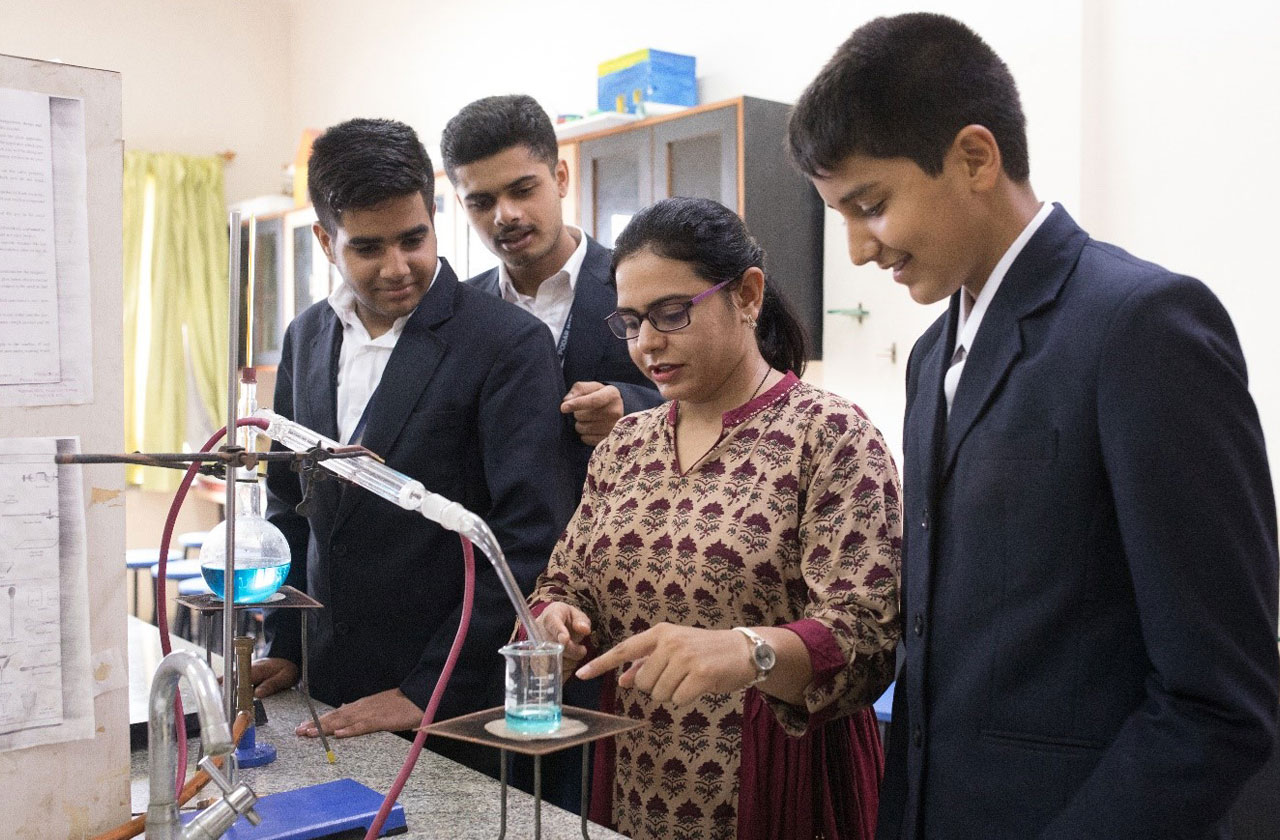The Benefits of Science Education in Schools for Building a Strong Foundation
Science is not just a subject; it's a way of thinking, exploring, and understanding the world around us. Science education in schools plays a pivotal role in building a solid foundation for students, equipping them with skills and knowledge that extend far beyond the classroom. At Podar International School, we recognise the immense value of science education and its role in nurturing curious minds. Let’s delve into the numerous benefits of science education and why students need to study science.
- Fostering Curiosity and Critical Thinking
Science encourages curiosity. It invites students to question, explore, and seek answers to the mysteries of the universe. This curiosity, in turn, fosters critical thinking skills. Students learn to analyse data, make observations, and draw evidence-based conclusions. These skills are not only valuable in science but also in everyday life, problem-solving, and decision-making. - Building a Strong Foundation for Future Careers
Science education lays the groundwork for a wide range of careers. Whether a student aspires to become a doctor, engineer, researcher, or entrepreneur, a strong foundation in science is essential. It provides the knowledge and skills needed to excel in various fields and adapt to an ever-evolving job market. - Promoting Innovation and Creativity
The study of science encourages creativity and innovation. Students are encouraged to think outside the box, develop new ideas, and invent solutions to real-world problems. This creativity is not limited to science; it can also be applied to fields like art, business, and technology. - Understanding the World Around Us
Science helps students understand the natural world and their place in it. It answers fundamental questions about the Earth, the universe, and life. This knowledge fosters a deeper appreciation for the beauty and complexity of our world. - Developing Problem - Solving Skills
In science, students are presented with complex problems that require careful analysis and systematic problem-solving. These skills are transferable to various situations in life, helping students tackle challenges with confidence and competence. - Enhancing Communication Skills
Science education emphasises clear and effective communication. Students learn to communicate their ideas, findings, and conclusions through reports, presentations, and discussions. These communication skills are valuable in both academic and professional settings. - Encouraging Environmental Awareness
Studying science promotes environmental awareness and an understanding of the impact of human activities on the planet. It empowers students to make informed decisions about sustainability and conservation. - Preparing for the Digital Age
In today's digital age, scientific literacy is more important than ever. Science education equips students with the knowledge and skills to navigate and thrive in a technology-driven world. - Fostering Global Citizenship
Science transcends borders and cultures. It connects students to a global community of scientists and researchers working to address pressing global issues. This fosters a sense of global citizenship and a commitment to addressing global challenges. - Encouraging Lifelong Learning
Science education instils a love for learning. It encourages students to continue exploring and seeking knowledge throughout their lives. The skills and curiosity developed in science education serve as a lifelong asset.
Science education in schools is not just about memorising facts; it's about nurturing inquisitive minds, developing critical thinking skills, and preparing students for a future full of possibilities. At Podar International School, science education is the cornerstone of a well-rounded education. It empowers students to question, innovate, and positively impact the world. By studying science, students gain the knowledge and skills needed to excel in their academic pursuits and future careers while fostering a deep appreciation for the wonders of the natural world.
Science education is not just about building a solid foundation; it's about empowering students to reach new heights and shape a brighter future for themselves and our world.
Topics

